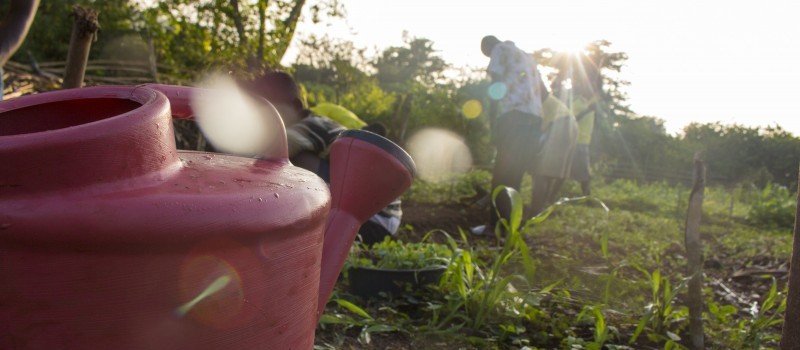In the hustle and bustle of the tro tro station I felt a young man gently grab my arm. At first I brushed it off because at the same time another person was trying to help me find the tro that would get me to my destination. The young man reached again and this time I quickly turned to him. When I met his eyes, he smiled and said “4-H!” and I responded with their motto “Learn, earn and go green” and I realized he recognized me from 4-H officer trainings I had been a part of. Despite the hectic scene around us, we made an immediate connection, one of mutual understanding of the importance of agriculture and it showcased the wide reach 4-H Ghana has achieved.

Before I was introduced to agriculture my freshman year of high school, I was apathetic to how food was grown. That all changed one day due to an activity in an ag mechanics class. Ever since then I’ve been intrigued by agriculture and how it connects humans throughout the world. Throughout high school and even in college, many people asked me “Oh you show cows…or you are studying agribusiness…what are you going to do with that? Be a farmer?” And then they would chuckle and silently think how silly it was for me to study agriculture.
In Ghana the sentiment towards agriculture as a career is similar but for seemingly opposite reasons. Generally Americans are 2 to 3 generations removed from the farm and have large Walmarts, Target Supercenters and a growing farmers market and CSA scene at their fingertips. Most consumers can’t tell you what a cotton plant looks like or the difference between field corn and sweet corn because they don’t have to. In Ghana, however, many people are still directly tied to the land. Away from the big cities of Accra, Kumasi and Tamale, most students have a parent or close relative that are farmers. Farming here is seen as an effect of minimal education and is often seen as a poor man’s job and students are afraid of the stigma. However, I know and many (if not all of you out there) know that agriculture can be a profitable business and is one of the most consistent jobs on the planet (consistency does not take into account riskiness)- we all need food to survive.

AgriCorps aims to improve food security in Ghana by equipping students, farmers, and community members with the technical knowledge and skills to be productive and profitable through agriculture. It’s also about empowering students. Ghanaian students are extremely eager to learn and are often taught answers are right and wrong, black and white and they fear answering incorrectly. The education system is far from perfect but equipping students with critical thinking skills partnered with technical skills they can use in life is a knockout combination.
Gena Perry received a bachelors and masters degree in Agribusiness from the University of Georgia. Before becoming an AgriCorps Member, Gena studied agriculture in Tanzania and Taiwan and worked for an agricultural marketing agency.


